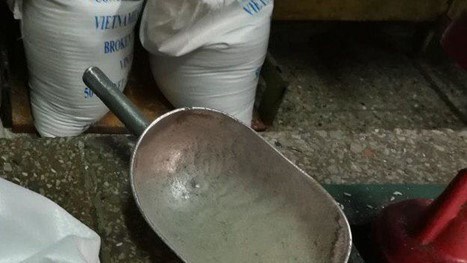To help face the shortage, Vietnam makes a third donation this year

The Asian country promised to deliver to the island 1,200 tons of rice, the mainstay in the Cuban diet.
By 14ymedio
HAVANA TIMES – Cuba will receive a shipment of 1,200 tons of rice donated by the Government of Vietnam. The amount equals around a half pound to each Cuban household. Although it is not known when it will arrive, a “symbolic delivery” took place this Monday during a meeting between officials of the Communist Party of the Island and a delegation from Ho Chi Minh City at the Hotel Nacional, in the Cuban capital, as reported by the official newspaper Tribuna de La Habana.
The Vietnamese delegation was led by Nguyen Thi Le, deputy secretary of the Central Committee of the Communist Party and president of Ho Chi Minh City. On the Cuban side the meeting was attended by Luis Antonio Torres Iríbar, first secretary of the Communist Party of Cuba in Havana, and Yanet Hernandez Pérez, governor of Havana, along with other officials.
The words of both parties, quoted by Tribuna, highlight the differences in the discourse that characterize the regimes of Vietnam and Cuba. While the representatives of the Asian country praised the economic achievements of their city, Torres Iríbar limited himself to describing the will of the habaneros to “resist creatively in the face of adversity.”
Nguyen Thi Le pointed out that Ho Chi Minh City is considered an engine of growth for the Vietnamese economy, with a contribution of 23% of the Gross Domestic Product and a generation of exports valued at more than 47 billion dollars in 2022. The Cuban official responded by alluding to the “complex economic situation facing the Island due to the escalation of the US embargo, the effects of COVID-19 and consequences of the weather in recent years.”
Vietnam has become a constant supplier of rice to the Island, whose production is far insufficient to meet national demand. However, these donations have not been enough to solve the shortage, and the price per pound has skyrocketed above 250 pesos, a little over a USD in a country where the average wage is under 20 dollars and many pensions don’t surpass $7.
At the meeting, Vietnamese officials also pledged to promote relations with their counterparts in Havana in the areas of tourism, agriculture, biotechnology, commerce, education, and health, although without giving details of future projects or investments in those sectors.
The Vietnamese authorities also showed interest in “taking advantage” of the experiences of Havana’s Family Doctor and Nurse Program, an “emblem” of the Cuban Government, which in 2024 will celebrate 40 years, focusing on bringing medical personnel to “the neighborhoods.” However, in reality, that has pretty much been left in the past for more than a decade due to the exodus of professionals and the economic crisis.
According to the official press, Torres expressed his “satisfaction” with the meeting to reinforce the “deep bonds of friendship.” A “show” of that friendship is the contribution that Vietnam has made “to the food security of the Cuban people, specifically in the production of rice, coffee, corn and aquaculture,” the text adds.
So far in 2023, this is the third donation of rice to the Island from Vietnam: the first was 5,000 tons in May, and the second, 2,000. It is scheduled to arrive at the port of Mariel in September. Again, the official press avoids mentioning the La Sierpe rice growing project in Sancti Spíritus, abandoned in the middle of last year by Vietnamese technicians due to the lack of compliance on the Cuban side.
14ymedio confirmed this month that producers in the rice region are facing a regulation that will limit the amount destined for self-consumption, implemented by the Government to prevent the product from ending up on the informal market. The regulation also threatens to take away the land from producers who fail to comply with it.
Translated by Regina Anavy for Translating Cuba
Read more from Cuba here on Havana Times




